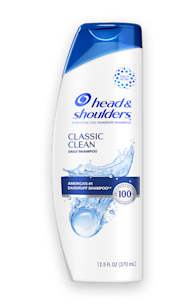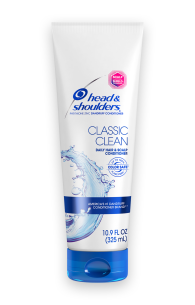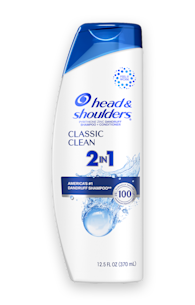SYMPTOM CHECKER: NEURODERMATITIS OR DANDRUFF

Both neurodermatitis and dandruff can cause an itchy scalp, making it difficult to distinguish between the two conditions. Use our guide to make things simpler.
Neurodermatitis can appear anywhere on your body. When it shows up on your scalp, you might wonder if you actually have dandruff.
Luckily, there is an easy way to clear things up: using an anti-dandruff shampoo daily for two weeks will get dandruff under control, reducing the characteristic itching. Neurodermatitis, on the other hand, won’t respond to dandruff shampoo at all.
But that’s not the only difference between these two conditions. To find out more, let’s start by looking more closely at dandruff.
What causes dandruff?
Malassezia globosa is a yeast-like fungus that lives on all of us. Typically, it’s harmless, but some people have a sensitivity to one of its by-products, oleic acid.
In those who are sensitive to oleic acid, Malassezia globosa is responsible for symptoms that include:
white flakes in the hair
irritated, red scalp
This is what we call dandruff. And, as we’ve mentioned, it’s not too hard to get rid of – dandruff shampoos are specifically formulated to prevent oleic acid from forming.
What is neurodermatitis?
In contrast to dandruff, neurodermatitis is a far less understood skin condition.Medical scientists have not yet worked out a definitive cause of neurodermatitis, but there are a few things we know.
Neurodermatitis has a tendency to appear more often in women than men, and is usually seen in those between the ages of 30 and 50. While there isn’t any definitive answer to what causes this skin condition, there does appear to be a clear link between anxiety or stress and neurodermatitis.
One of the major differences between neurodermatitis and dandruff is location – while dandruff is typically confined to the scalp, neurodermatitis can appear anywhere on the body.
The symptoms of neurodermatitis are distinct from dandruff as well. While both conditions cause itching, neurodermatitis will start with a small patch of itchy skin. The itch can be very intense, and frequent, and it can become so uncomfortable that it disrupts sleep. Repetitive rubbing or scratching of the affected area makes the skin become thick and leathery. People tend to develop just one or two itchy patches, although it’s possible to develop more.
Treating neurodermatitis
If you think you may be suffering from neurodermatitis, then it’s important that you contact your doctor. While you may have some success treating the symptoms of the problem yourself, to cure the condition you’ll probably need the help of a professional.
Generally, your doctor will take a two-prong approach to treating your skin condition. First, they will look to tackle the symptoms of the problem using antihistamines and anti-inflammatories, such as corticosteroids.
If it is indicated, the second part of treatment involves addressing any psychological component of the condition. This may include anti-anxiety medication, and psychological counselling.





